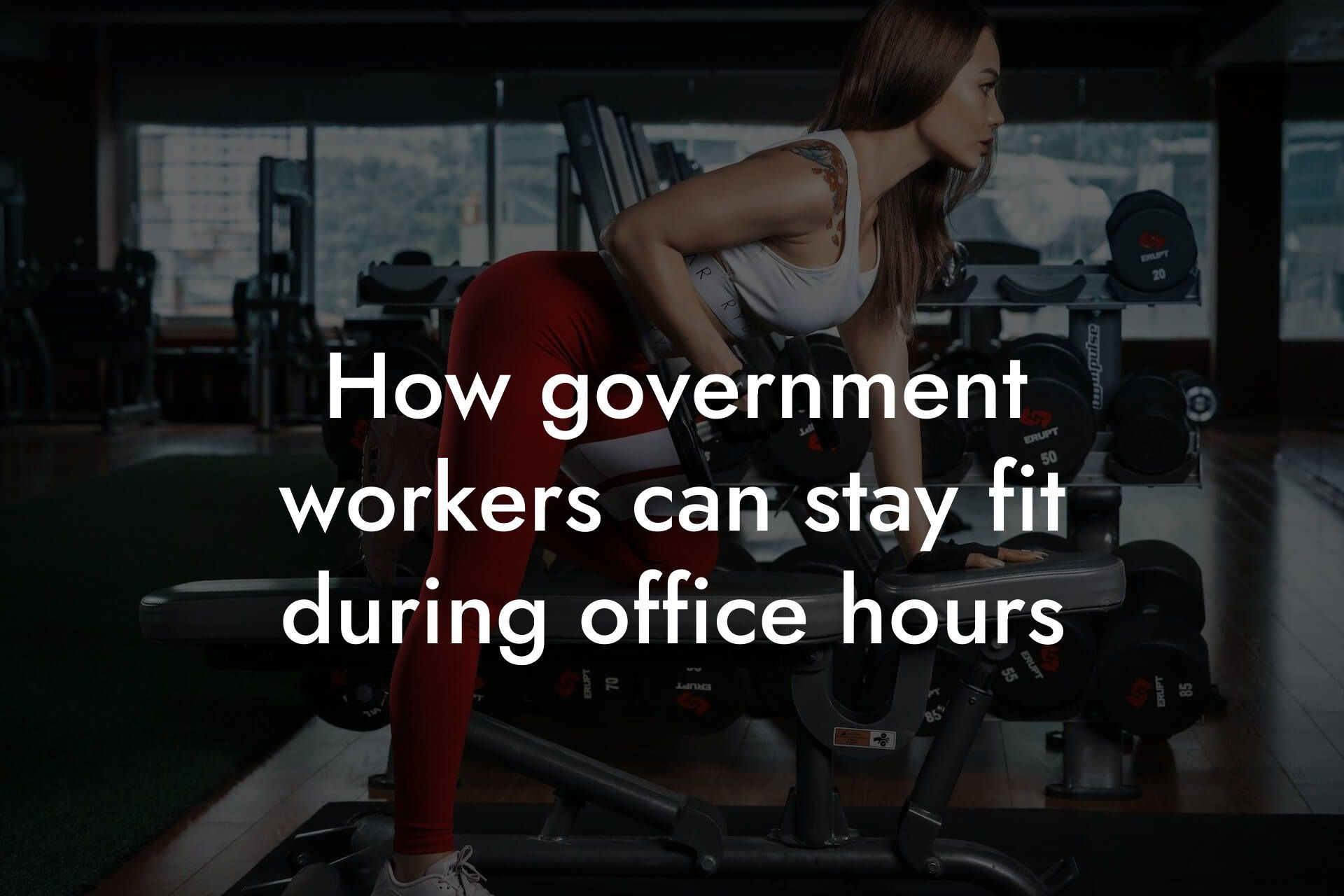As a government professional, you understand the importance of maintaining a high level of physical fitness and overall health. Your job demands a great deal of energy, focus, and resilience, and any decline in your physical condition can impact your performance and overall well-being. This is where DEXA scans come in – a powerful tool that can provide you with a comprehensive understanding of your body composition, bone density, and other vital health metrics.
Table of Contents
What is a DEXA Scan?
A DEXA (Dual-Energy X-ray Absorptiometry) scan is a non-invasive medical test that uses X-rays to measure bone density and body composition. It is commonly used to diagnose osteoporosis, a condition characterized by brittle and fragile bones, but it can also provide a wealth of information about your overall health and fitness. During a DEXA scan, you will lie down on a table, and a scanner will pass over your body, emitting low-level X-rays that measure the density of your bones and other tissues.
Benefits of DEXA Scans for Government Professionals
As a government professional, you can benefit from DEXA scans in several ways:
Firstly, DEXA scans can help you identify potential health risks, such as osteoporosis, that can impact your ability to perform your duties. By detecting bone loss early, you can take steps to prevent further deterioration and reduce your risk of fractures and other injuries.
Secondly, DEXA scans can provide you with a detailed analysis of your body composition, including your percentage of body fat, lean muscle mass, and visceral fat. This information can help you optimize your diet and exercise routine, leading to improved physical performance and overall health.
Thirdly, DEXA scans can help you track your progress over time, allowing you to adjust your fitness and nutrition strategy as needed. This is particularly important for government professionals who may be required to pass regular fitness tests or maintain a certain level of physical fitness.
Understanding Body Composition
Body composition refers to the proportion of fat and lean mass in your body. There are several components of body composition, including:
Fat mass: This includes both subcutaneous fat (fat just beneath the skin) and visceral fat (fat surrounding internal organs).
Lean mass: This includes muscle, bone, and other non-fat tissues.
Visceral fat: This type of fat is particularly dangerous, as it can increase your risk of chronic diseases, such as heart disease and type 2 diabetes.
By understanding your body composition, you can identify areas for improvement and make targeted changes to your diet and exercise routine.
How DEXA Scans Can Improve Physical Performance
DEXA scans can help you improve your physical performance in several ways:
By identifying areas of low bone density, you can take steps to improve your bone health, reducing your risk of injury and improving your overall physical performance.
By analyzing your body composition, you can optimize your diet and exercise routine, leading to improved muscle mass and reduced body fat.
By tracking your progress over time, you can adjust your fitness strategy as needed, ensuring that you continue to make progress towards your goals.
Common Misconceptions About DEXA Scans
There are several common misconceptions about DEXA scans that may prevent government professionals from taking advantage of this valuable tool:
Misconception: DEXA scans are only for older adults.
Reality: While DEXA scans are commonly used to diagnose osteoporosis in older adults, they can be beneficial for individuals of all ages, particularly those who are physically active or have a high risk of bone loss.
Misconception: DEXA scans are expensive and not covered by insurance.
Reality: While the cost of DEXA scans can vary, many insurance plans cover the procedure, particularly for individuals who are at high risk of osteoporosis or other health conditions.
What to Expect During a DEXA Scan
During a DEXA scan, you can expect the following:
You will lie down on a table, and a scanner will pass over your body, emitting low-level X-rays.
The procedure is painless and non-invasive, and you will not feel any discomfort or sensation during the scan.
The entire procedure typically takes around 10-15 minutes, although this may vary depending on the type of scan and the individual performing the test.
As a government professional, you understand the importance of maintaining a high level of physical fitness and overall health. DEXA scans can provide you with a wealth of information about your body composition, bone density, and other vital health metrics, helping you optimize your diet and exercise routine, reduce your risk of injury and disease, and improve your overall physical performance. By taking advantage of this powerful tool, you can take your health and fitness to the next level, leading to improved job performance and overall well-being.
At Tano Performance Group, we offer comprehensive DEXA scans and body composition analysis, providing government professionals with the information they need to take their health and fitness to the next level. Contact us today to learn more about our services and how we can help you achieve your goals.
Frequently Asked Questions
What is a DEXA scan and how does it work?
A DEXA (Dual-Energy X-ray Absorptiometry) scan is a non-invasive, pain-free test that measures bone density and body composition. It uses low-level X-rays to produce detailed images of the body's bones and soft tissues. The scan takes about 10-15 minutes to complete, and the results provide a comprehensive picture of bone density, lean mass, fat mass, and other health metrics.
Why are DEXA scans important for government professionals?
As a government professional, you understand the importance of maintaining optimal physical health to perform your duties effectively. DEXA scans provide valuable insights into your overall health, allowing you to identify potential health risks and take proactive measures to prevent them. Additionally, DEXA scans can help you track the effectiveness of your fitness and nutrition programs, ensuring you're reaching your goals and maintaining peak performance.
What are the benefits of DEXA scans for government professionals?
DEXA scans offer numerous benefits for government professionals, including: accurate body fat percentage measurement, identification of potential osteoporosis risks, tracking of muscle mass and bone density, and personalized recommendations for fitness and nutrition programs. By incorporating DEXA scans into your health routine, you can optimize your physical performance, reduce the risk of injury, and improve your overall well-being.
How often should I get a DEXA scan?
The frequency of DEXA scans depends on your individual health goals and needs. If you're looking to track progress and make adjustments to your fitness and nutrition program, we recommend getting a DEXA scan every 3-6 months. However, if you're simply looking to establish a baseline measurement, a single scan may be sufficient. Consult with a healthcare professional to determine the best schedule for your specific needs.
What is the difference between a DEXA scan and a body fat caliper measurement?
A DEXA scan provides a comprehensive measurement of body composition, including bone density, lean mass, and fat mass. Body fat caliper measurements, on the other hand, only provide a surface-level measurement of body fat percentage. While caliper measurements can be useful, they may not provide an accurate representation of overall body composition. DEXA scans offer a more detailed and accurate picture of your body's composition.
Can DEXA scans help me achieve my fitness goals?
Absolutely! DEXA scans provide valuable insights into your body composition, allowing you to tailor your fitness program to your specific needs. By tracking changes in lean mass, fat mass, and bone density, you can adjust your workout routine and nutrition plan to optimize your results. Additionally, DEXA scans can help you identify areas of improvement, ensuring you're targeting the right muscle groups and making progress towards your goals.
How does a DEXA scan measure bone density?
A DEXA scan uses low-level X-rays to measure the density of your bones. The scan produces a T-score, which compares your bone density to that of a healthy adult of the same age and sex. A T-score of -1 or higher indicates normal bone density, while a score of -2.5 or lower indicates osteoporosis. By tracking changes in bone density, you can identify potential risks and take proactive measures to prevent osteoporosis.
What is the difference between a T-score and a Z-score?
A T-score compares your bone density to that of a healthy adult of the same age and sex, while a Z-score compares your bone density to that of an average person of the same age, sex, and ethnicity. Both scores are important for understanding your bone health, but the T-score is more commonly used to diagnose osteoporosis.
Can DEXA scans help me identify potential health risks?
Yes, DEXA scans can help identify potential health risks, including osteoporosis, sarcopenia, and obesity. By tracking changes in bone density, lean mass, and fat mass, you can identify potential risks and take proactive measures to prevent them. Additionally, DEXA scans can help you identify areas of improvement, ensuring you're taking steps to maintain optimal health.
How accurate are DEXA scans?
DEXA scans are highly accurate, with a margin of error of around 1-2%. This is because DEXA scans use advanced technology to produce detailed images of the body's bones and soft tissues. Additionally, DEXA scans are calibrated regularly to ensure accuracy and consistency.
Are DEXA scans safe?
Yes, DEXA scans are extremely safe. They use low-level X-rays, which are significantly lower than those used in traditional X-rays. The scan itself is painless and non-invasive, and you'll be exposed to minimal radiation.
What should I wear to a DEXA scan appointment?
We recommend wearing loose, comfortable clothing that doesn't contain metal or other dense materials. Avoid wearing jewelry, glasses, or any other items that may interfere with the scan. You'll also be asked to remove any metal objects, such as keys or coins, before the scan.
How long does a DEXA scan take?
A DEXA scan typically takes around 10-15 minutes to complete. This includes the time it takes to prepare for the scan, complete the scan itself, and review the results with a healthcare professional.
Will I receive a report after the scan?
Yes, you'll receive a comprehensive report detailing the results of your DEXA scan. This report will include information on your bone density, lean mass, fat mass, and other health metrics. You'll also have the opportunity to review the results with a healthcare professional, who can provide personalized recommendations for fitness and nutrition programs.
Can I get a DEXA scan if I'm pregnant or breastfeeding?
We recommend avoiding DEXA scans during pregnancy and breastfeeding, as the radiation used in the scan may pose a risk to the fetus or baby. However, if you have concerns about your bone health during this time, consult with a healthcare professional to discuss alternative options.
How much does a DEXA scan cost?
The cost of a DEXA scan varies depending on the location and provider. At Tano Performance Group, we offer competitive pricing for DEXA scans, and we're happy to work with you to find a solution that fits your budget. Contact us to learn more about our pricing and packages.
Is a DEXA scan covered by insurance?
Insurance coverage for DEXA scans varies depending on your provider and policy. Some insurance plans may cover DEXA scans for specific medical conditions, such as osteoporosis. We recommend checking with your insurance provider to determine coverage and any out-of-pocket costs.
Can I get a DEXA scan if I have a pacemaker or other implant?
If you have a pacemaker or other implant, it's generally safe to get a DEXA scan. However, we recommend consulting with a healthcare professional to discuss any potential risks or concerns. In some cases, alternative imaging tests may be recommended.
How does a DEXA scan compare to other body composition tests?
DEXA scans are considered the gold standard for body composition testing, offering unparalleled accuracy and detail. While other tests, such as bioelectrical impedance analysis (BIA) or skinfold measurements, may provide some information on body composition, they are often less accurate and less comprehensive than DEXA scans.
Can I get a DEXA scan if I'm under 18?
We recommend that individuals under 18 consult with a healthcare professional before getting a DEXA scan. While DEXA scans are generally safe, they may not be suitable for children or adolescents, as their bones are still developing.
How do I prepare for a DEXA scan?
To prepare for a DEXA scan, avoid eating or drinking for at least 2 hours before the scan. Wear loose, comfortable clothing, and remove any metal objects or jewelry. You'll also be asked to complete a brief questionnaire about your medical history and health goals.
What happens during a DEXA scan?
During a DEXA scan, you'll lie on a comfortable examination table, and a scanner will pass over your body, taking detailed images of your bones and soft tissues. The scan itself is painless and non-invasive, and you'll be able to breathe normally and relax throughout the process.
Can I get a DEXA scan if I have a medical condition?
If you have a medical condition, such as osteoporosis or a spinal injury, a DEXA scan can be a valuable tool for tracking your progress and identifying potential health risks. However, we recommend consulting with a healthcare professional to discuss any potential risks or concerns related to your condition.
Here are some related articles you might love...
- How government workers can stay fit during office hours
- Nutrition tips for maintaining energy during long meetings
- Balancing public service duties with personal fitness
- Managing stress through physical fitness in public service
- How to stay active during legislative sessions
- The connection between fitness and public trust
- The role of physical health in community leadership
- The impact of body composition on public service effectiveness
- Quick workouts for government workers on tight schedules
Zak Faulkner
Zak Faulkner is a leading authority in the realm of physical health and body composition analysis, with over 15 years of experience helping professionals optimise their fitness and well-being. As one the experts behind Tano Performance Group, Zak has dedicated his career to providing in-depth, science-backed insights that empower clients to elevate their physical performance and overall health.
With extensive knowledge of DEXA technology, Zak specializes in delivering comprehensive body assessments that offer precise data on body fat, muscle mass, bone density, and overall physique. His expertise enables individuals to make informed decisions and achieve their fitness goals with accuracy and confidence. Zak’s approach is rooted in a deep understanding of human physiology, combined with a passion for helping clients unlock their full potential through personalised strategies.
Over the years, Zak has earned a reputation for his commitment to excellence, precision, and client-focused service. His guidance is trusted by top professionals who demand the best when it comes to their health. Whether advising on fitness programs, nutritional strategies, or long-term wellness plans, Zak Faulkner’s insights are a valuable resource for anyone serious about taking their health and fitness to the next level.
At Tano Performance Group, Zak continues to lead our Content Team revolutionising how professionals approach their physical health, offering unparalleled expertise that drives real results.




